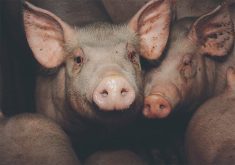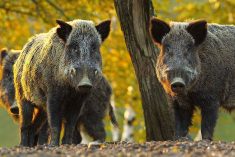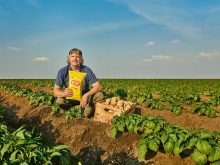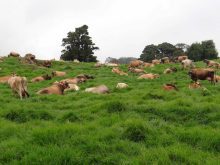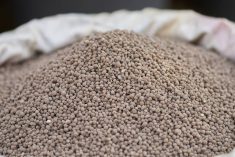Prices Pig and dairy farmers are among the hardest hit as feed costs climb on lower crop yields
Farm incomes are set to fall in England in 2012-13 with pig and dairy producers among the hardest hit as feed costs climb and the wettest year on record reduces crop yields and quality, Britain’s Farm Ministry said Jan. 31.
Specialist pig farms are expected to see a 50 per cent fall in incomes to 19,000 pounds ($30,000) per farm and those of dairy farms projected to decline 42 per cent to 50,000 pounds.
The 2012-13 season runs until the end of February.
The figures showed a third consecutive fall for pig farmers whose income is now barely more than a quarter of the 75,500 pounds reported in 2009-10.
Read Also
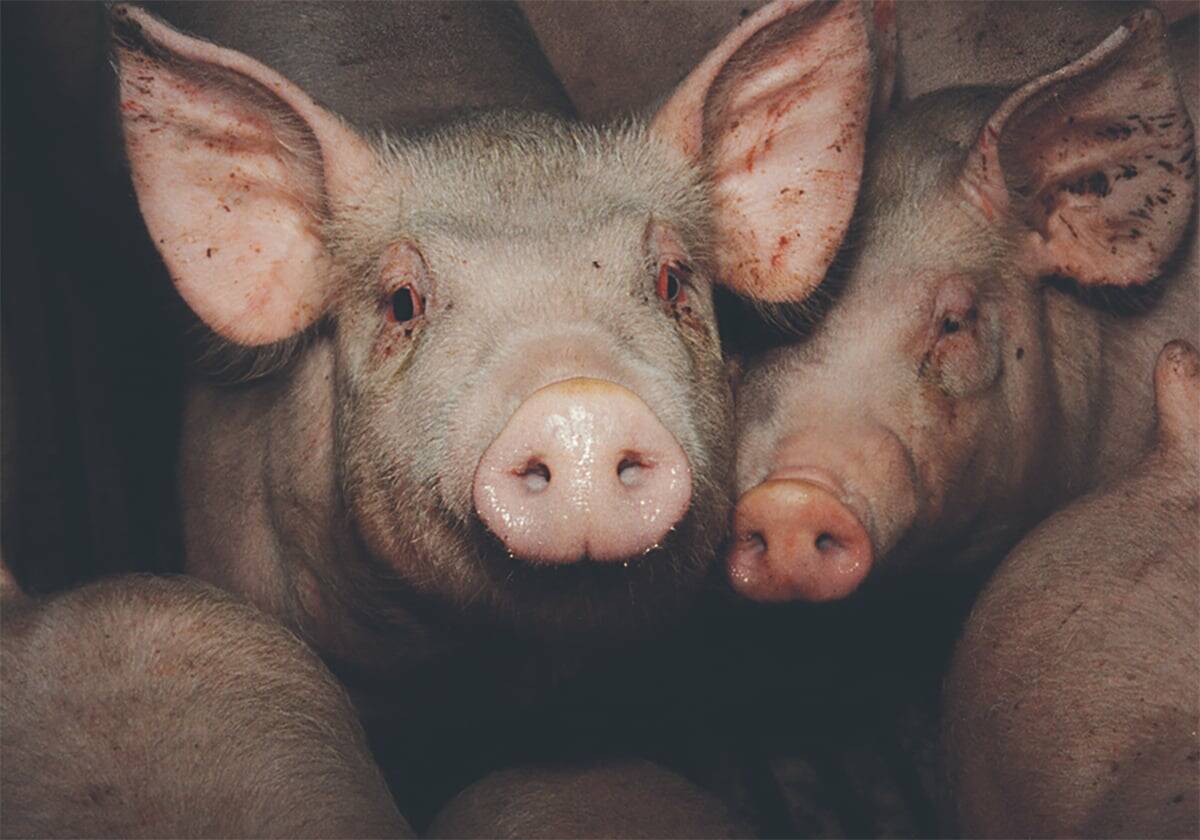
Scientists discover cause of pig ear necrosis
After years of research, a University of Saskatchewan research team has discovered new information about pig ear necrosis and how to control it.
“An unprecedented increase in the cost of feed which accounts for 60 per cent of the cost of producing a pig was not supported by an increase in the price that farmers were paid for their pork,” Zoe Davies, general manager of the National Pig Association, said.
“This put many businesses under severe pressure with the net result that around 17,500 sows were lost from the national herd last year,” she added.
The beginning of the year had been dry, with the government calling a drought summit in February, but the deluge began in April and continued for much of the rest of the year, saturating farmland and causing widespread flooding on several occasions.
“The figures make sobering reading but will be no surprise for many in the industry,” National Farmers Union chief economist Phil Bicknell said in a statement.
“Rising costs outstripped farm gate price changes for dairy and pork producers at times over the last year. More recently, we can add the plummeting lamb price to the list of challenges the industry faces,” he added.
The ministry said the dairy sector was hit not only by a rise in feed costs but also by the need to purchase higher volumes due to a combination of reduced grazing days and low-quality home-produced forage.
Feed wheat prices in Britain for nearby delivery rose to a record high of 227 pounds a tonne in November last year as rains drove yields down to a 23-year low. A year earlier the price had fallen to as low as 140 pounds.
Income for cereal farmers in England fell by 11 per cent to 84,000 pounds with higher prices more than offset by lower yields and quality.
Poultry was the best-performing sector with income expected to be unchanged at 21,000 pounds per farm.
“In this sector, while feed costs are predicted to increase, a higher output from both broiler and egg production is also expected, resulting in average incomes being unchanged,” the ministry said.


